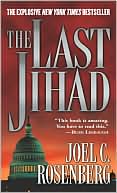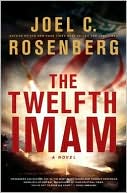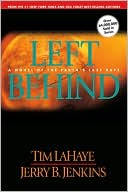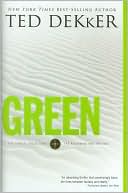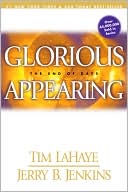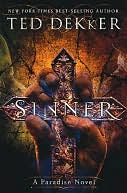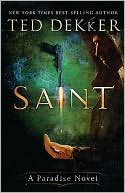The Last Jihad
Search in google:
The book that started it all, The Last Jihad is the first of Joel C. Rosenberg's New York Times best-selling series, with 500,000 in print. The first page puts readers in the cockpit of a hijacked jet on a kamikaze mission into an American city--but it was written nine months before 9/11/01. As the plot unfolds, White House advisors Jon Bennett and Erin McCoy are under attack in Jerusalem as the U.S. goes to war with Iraq over weapons of mass destruction--but The Last Jihad was published four months before the actual Iraq war began.Publishers WeeklyTimeliness adds considerable juice to Rosenberg's frenzied political thriller, set a couple of years in the future. In the wake of September 11, popular American president James MacPherson has spearheaded an international effort to destroy terrorist training camps in the Middle East and North Africa. Osama bin Laden has been killed, but Saddam Hussein continues to plot against the West. The novel opens with a coordinated international terrorist attack, in which Paris and London and several sites in the United States are bombed. Quick-thinking agents deflect an assassination attempt on the president, but MacPherson is gravely wounded. The reader follows the crisis through the eyes of Jon Bennett, a Wall Street strategist putting together a stock deal in Israel when the terrorists strike. Bennett once worked closely with MacPherson on Wall Street. After a tortuous interrogation at the Jerusalem airport on his way back to the U.S., Bennett passes out, expecting to be killed. When he awakes, he finds that he has passed a crucial test and is now a member of President MacPherson's inner circle of advisers. So far, Rosenberg (Not Quite Scaramouche, etc.) keeps a lot of narrative balls in the air with lean writing and breakneck pacing, but at this midway point the novel loses focus and urgency. Rosenberg's failure to give the characters dimension is exposed when the story slows down and moves away from dramatic scenes of action. Intelligence reports indicate that Saddam may be planning a nuclear attack, and the advisers engage in a lengthy heated discussion about a first strike. Though the characters in this debate come off like talking heads, the energy and scope of the dispute breathes new life into the last half of the novel and hints at greater things from the author.
